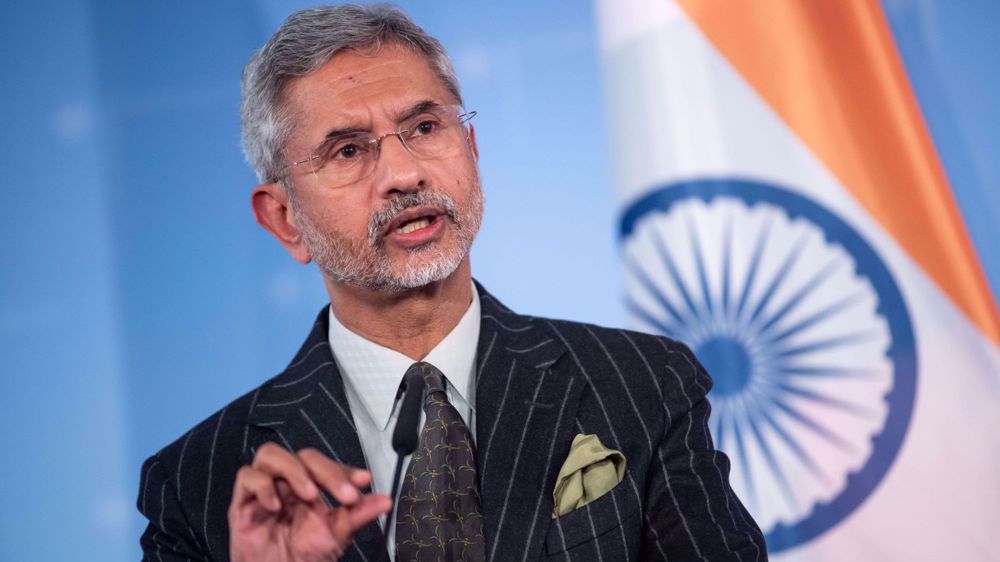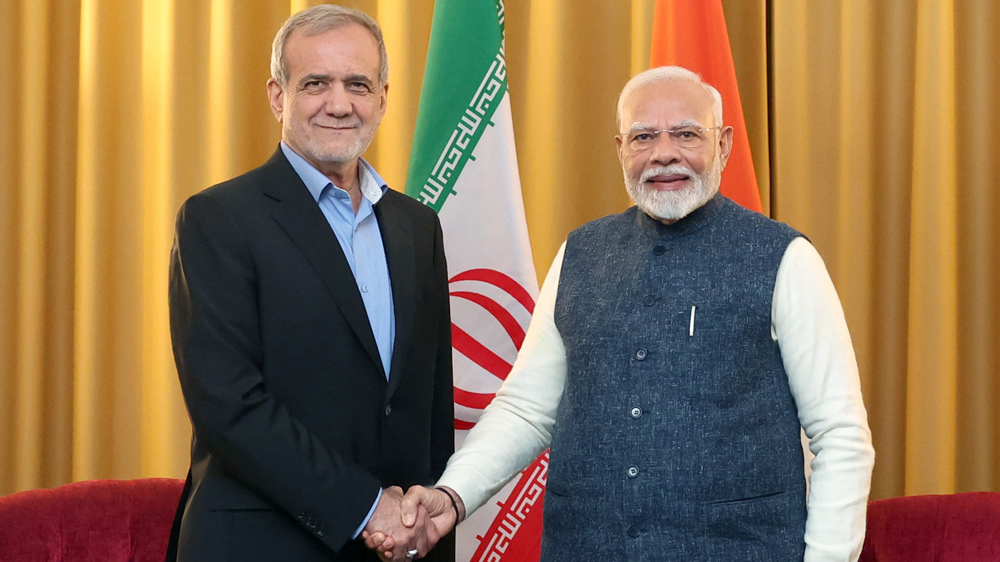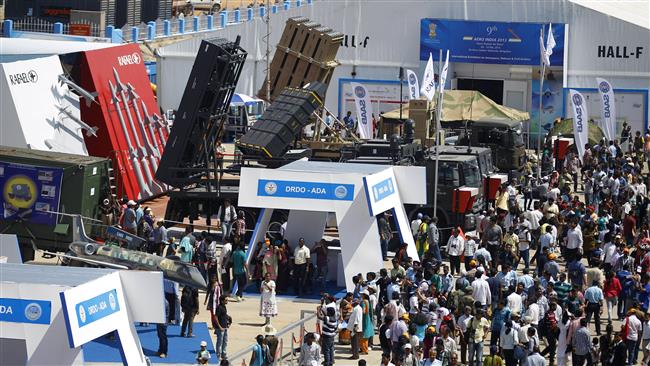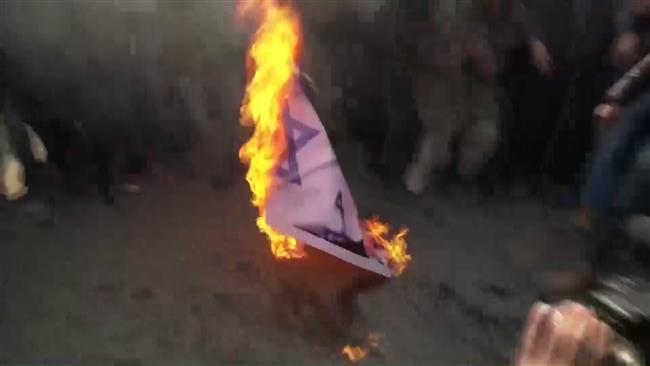Israeli PM on long tour of India with eye on arms trade
Israel’s prime minister starts a six-day-long tour of India, a major buyer of Tel Aviv’s arms, as controversy bubbles away over the regime’s arms sales in Asia.
On Sunday, Benjamin Netanyahu began the visit spanning India’s financial capital of Mumbai and his Indian counterpart Narendra Modi’s home-state of Gujarat, as well as New Delhi.
Accompanying the premier is a 130-member delegation from Israeli military, cyber and agriculture sectors.
Bilateral arms trade was worth an overall $9 billion during a decade ending in 2009. In 2016 alone, the volume of the trade stood at $600 million, making the subcontinent the most demanding arms buyer from Tel Aviv.
The two sides also share intelligence and carry out joint military training.
Netanyahu’s visit seeks to do away with a snag in the monumental military relations revealed in early 2018, when Israeli military contractor Rafael said India had cancelled a $500-million order to buy its Spike guided missiles.
“If there is a problem, it can, it should and it will be solved,” said Daniel Carmon, Israel's ambassador to India, AFP reported.
Despite the cancellation of the missile deal, India’s Defense Ministry said this month that it had cleared a plan worth $72 million to buy 131 Barak surface-to-air missiles built by Rafael.
Tel Aviv is still the target of international criticism since last October, when Israeli daily Ha’aretz said the regime had continued to sell advanced weaponry worth tens of millions of dollars to Myanmar even after a deadly government-sanctioned military campaign against Rohingya civilians in the Southeast Asian country came to light.
Myanmar, a Buddhist-majority country, has been accused by the United Nations of engaging in “textbook ethnic cleansing” of the minority Muslims.
A month later, the regime “reprimanded” Myanmar’s ambassador to Tel Aviv for revealing that Tel Aviv had signed a new arms deal with Naypyidaw.
Also in sight during the Israeli premier’s tour of India is boosting “trade, investment, and tourism between both countries,: said Gilad Cohen, deputy director-general for Asia and the Pacific in Israel’s ministry for foreign affairs.
Since 2014, India has been the third-largest Asian trade partner for Israel.

Modi took office that year and became the first sitting Indian prime minister to visit Israel in 2017.
New Delhi, however, joined the more than 120 countries last month to vote in favor of a resolution calling for the United States to drop its earlier recognition of Jerusalem al-Quds as Israel’s capital.
VIDEO | MEK trial in Tehran reveals heinous terrorist crimes
VIDEO | No Christmas in Gaza again
Iran condemns Israel’s brazen admission of Haniyeh murder
VIDEO | Conference in Islamabad explores Pakistan-Iran ties
Hamas condemns Israeli evacuation order of Indonesian Hospital
VIDEO | Yemen resistance remains resolute
'Easy target': Yemen warns 4th US carrier within reach
Iran military awarded $40 mln worth of vessel building contracts














 This makes it easy to access the Press TV website
This makes it easy to access the Press TV website